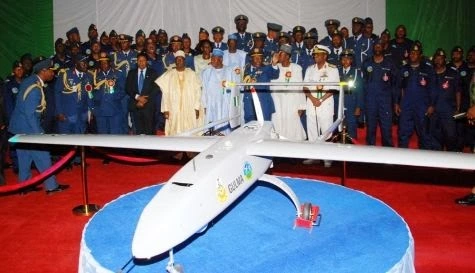The Nigerian Air Force (NAF) has renewed its Memorandum of Understanding (MoU) with the Lagos State University (LASU), reaffirming its commitment to advance Nigeria’s aerospace capabilities through strategic partnerships.
The MoU was signed during a courtesy visit by the Vice-Chancellor of LASU, Prof. Ibiyemi Olatunji-Bello, to the Headquarters NAF in Abuja.
This is contained in a statement by the Director, Public Relations and Information, NAF, Air Commodore Olusola Akinboyewa, on Wednesday in Abuja.
The Chief of the Air Staff (CAS), Air Marshal Hasan Abubakar, said the renewed MoU was a major step towards fostering technical collaborations with the academia to enhance indigenous aerospace engineering capacity.
Abubakar commended the University’s Aerospace Engineering Department for being a vital player in Nigeria’s aviation ecosystem.
He added that the NAF’s collaboration with LASU, which started with the first MoU in 2013, aligned with one of the key enablers of his Command Philosophy.
According to him, one of the key enablers is, “Prioritising research and development leveraging cutting-edge technology, strategic partnerships and lessons learnt”.
“The MoU was first renewed in 2018 for another five years, running until 2023, and has now been renewed again in 2024.
“Strategic partnerships with academia are essential for driving the future of aerospace engineering in Nigeria,” he said.
The CAS emphasised the importance of utilising advanced technology and research to meet the nation’s aviation needs.
He added that the renewed MoU would drive advancements in aerospace engineering and related fields through joint research, projects and conferences, as well as staff exchanges.
This, according to him, is to provide workable solutions that would ultimately reduce Nigeria’s overdependence on foreign partners.
Earlier, Prof. Olatunji-Bello expressed profound gratitude to the NAF for its unwavering support of LASU’s Aerospace Engineering programme.
She noted that the University’s efforts to establish a world-class department have been significantly bolstered by the NAF’s collaborative approach.
According to her, this partnership will enhance our capacity to train the next generation of engineers and researchers who will tackle critical challenges in the aerospace sector. (NAN)























